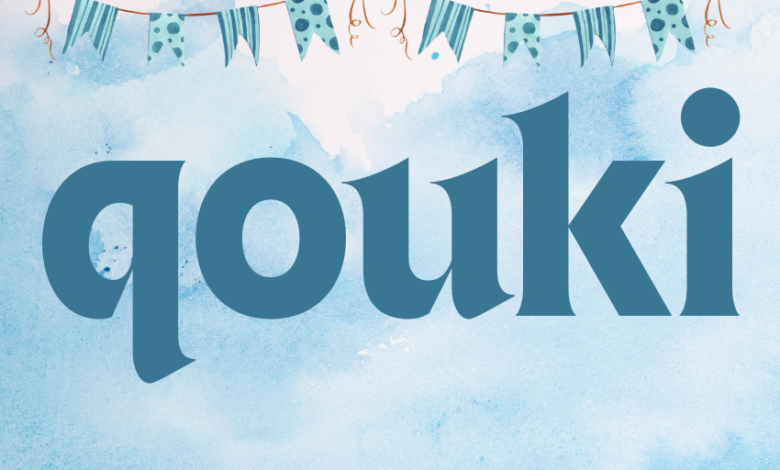Exploring the World of qouki : A Guide

Qouki, a term that encapsulates a wide array of meanings and connotations, refers to a concept, practice, or tradition deeply rooted in various cultures. Historically significant and culturally rich, Qouki has evolved through centuries, shaping and being shaped by the societies that embraced it. Understanding Qouki is crucial as it offers insights into the collective psyche and traditions of numerous civilizations.
Definition of Qouki
Qouki is not easily defined by a single phrase; rather, it encompasses a range of practices, beliefs, and traditions. At its core, Qouki can be understood as a cultural phenomenon that manifests in different forms across the world. Whether it pertains to a specific ritual, a type of artistic expression, or a philosophical concept, Qouki holds a significant place in the heritage of various communities.
Historical Background of Qouk
The origins of Qouk trace back to ancient times, with its earliest mentions found in historical texts and oral traditions. Over the centuries, Qouk has been passed down through generations, adapting and evolving in response to changing societal norms and technological advancements.
Importance of Understanding Qouk
In today’s globalized world, understanding Qouk is more important than ever. It fosters cultural appreciation and provides a window into the values and beliefs of different communities. Moreover, Qouki’s principles can offer alternative perspectives on modern-day issues, promoting a more inclusive and holistic worldview.
Origins and Evolution
Early Beginnings of Qouk
Qouki’s roots can be traced to early civilizations where it played a central role in daily life. It was often intertwined with religious practices, social structures, and governance. The earliest forms of Qouk were simple and symbolic, reflecting the rudimentary lifestyles of ancient peoples.
Key Milestones in Qouki’s Development
Throughout history, several key milestones marked the evolution of Qouk. The introduction of written language allowed for the documentation and dissemination of Qouk practices. Significant historical events, such as the rise and fall of empires, also influenced the trajectory of Qouk.
Evolution of Qouki Over the Years
From its humble beginnings, Qouki has undergone significant transformations. The advent of technology and globalization has brought about new interpretations and practices of Qouki. Today, Qouk is a dynamic and evolving tradition that continues to adapt to contemporary contexts.
Cultural Significance
Role of Qouk in Different Cultures
Qouk holds varying degrees of importance in different cultures. In some societies, it is a cornerstone of cultural identity, while in others, it plays a more peripheral role. The cultural significance of Qouki can be seen in festivals, ceremonies, and everyday practices.
Qouki in Modern Society
In modern society, Qouk has found new relevance. It is often seen as a means of reconnecting with one’s heritage and as a source of comfort and stability in an ever-changing world. Many people turn to Qouki for its perceived wisdom and guidance in contemporary life.
Celebrations and Rituals Involving Qouki
Celebrations and rituals are integral to Qouk. These events often mark significant life milestones, seasonal changes, and religious observances. They are a way for communities to come together and reaffirm their shared values and beliefs.
Qouk in Art and Literature
Representation of Qouk in Visual Arts
Qouk has been a recurring theme in visual arts, from ancient cave paintings to modern digital art. Artists use Qouki to express complex ideas and emotions, often drawing on traditional symbols and motifs to convey their messages.
Qouki in Literature and Poetry
Literature and poetry have long been mediums through which Qouk is explored and celebrated. Writers and poets use Qouki to delve into themes of identity, spirituality, and human experience, often blending historical and contemporary elements.
Influence of Qouki on Contemporary Art
Contemporary artists continue to be inspired by Qouk, incorporating its themes and aesthetics into their work. This influence can be seen in various forms, from abstract paintings to multimedia installations, demonstrating Qouki’s enduring relevance.
Technological Advancements
Impact of Technology on Qouk
Technology has had a profound impact on Qouk, making it more accessible to a global audience. Digital platforms allow for the sharing and preservation of Qouki practices, ensuring that they can be passed down to future generations.
Innovations and Modern Qouk Tools
Modern tools and innovations have revolutionized the way Qouki is practiced. From virtual reality experiences to interactive apps, these advancements offer new ways to engage with and understand Qouk.
Future Prospects of Qouki Technology
The future of Qouk technology looks promising, with ongoing research and development aimed at enhancing the practice. Potential advancements include more immersive experiences and AI-driven tools that provide personalized guidance and insights.
Economic Impact
Qouk and Global Economy
Qouk contributes to the global economy in various ways, from tourism and cultural exports to artisanal crafts and heritage industries. It is an economic driver that supports livelihoods and promotes cultural exchange.
Industry and Market Trends Related to Qouk
The Qouki industry has seen significant growth, with increasing demand for authentic experiences and products. Market trends indicate a growing interest in sustainable and ethically sourced Qouk-related goods.
Qouki in Business and Entrepreneurship
Entrepreneurs are tapping into the potential of Qouk, creating businesses that cater to its growing audience. These ventures range from boutique shops and online platforms to experiential tourism and wellness retreats.




